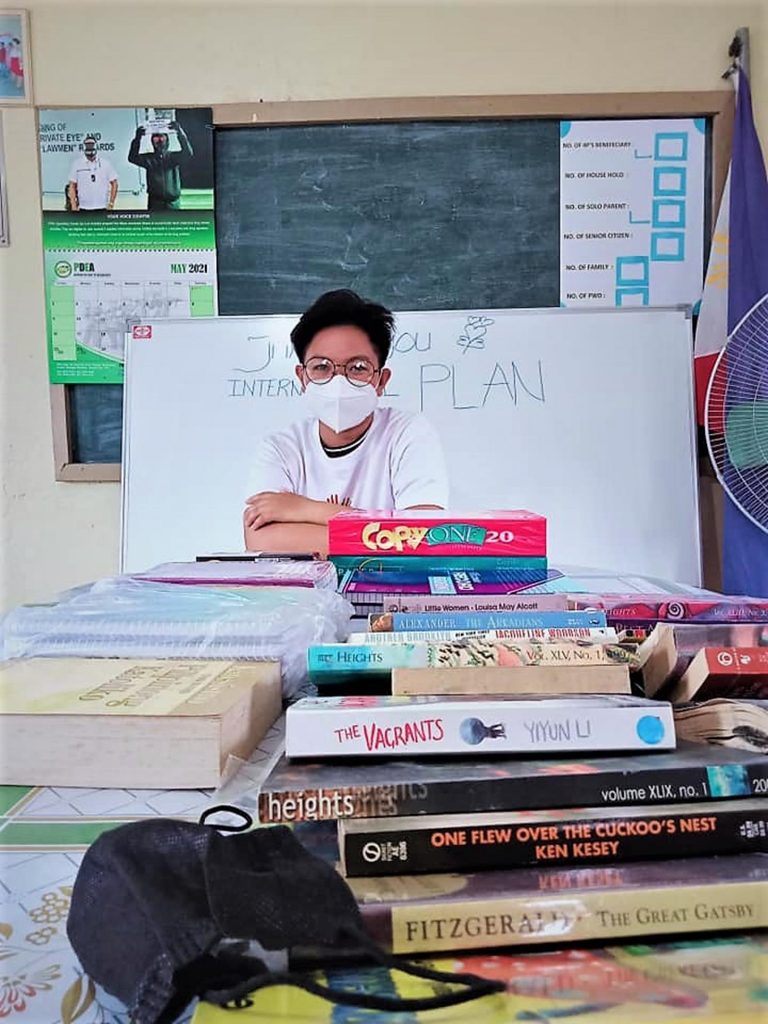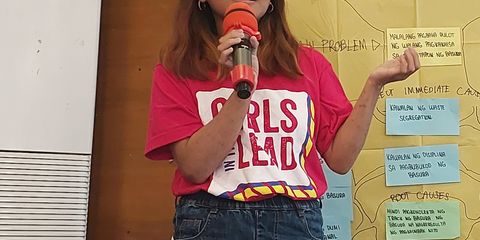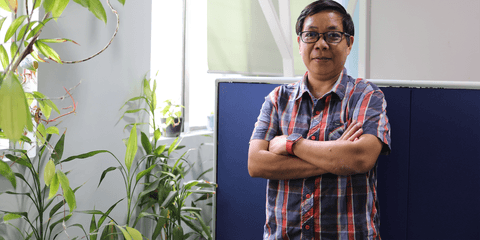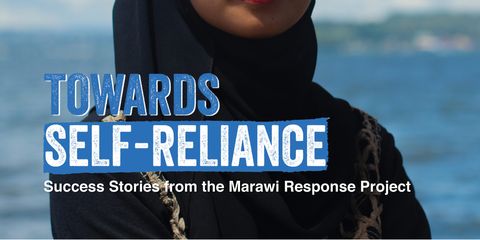21 JULY 2021
In the Philippines, the RAISE Above Project works with education advocates within the community to establish safe learning spaces for students affected by the COVID-19 pandemic.

Western Samar, Philippines —“Where can we study peacefully?”
This question flustered the minds of children in Barangay Diaz, Gandara.
“Most of the students here in our Barangay (village) go to the fields to help out their parents.” said Ten-Ten, chairperson of Barangay Diaz’ Youth Council (Sangguniang Kabataan).
“Since parents are busy farming in the fields, they don’t really have time to help their kids with their schooling,” Ten-Ten added.
Some children, according to Ten-Ten, also take the lead in cleaning their house, cooking meals, and taking care of younger siblings.
Given these obligations, some children are losing interest in their studies. Some children simply do not have enough time to study, read, nor play.
Even before the COVID-19 pandemic, learning challenges have already existed. The pandemic, however, added even more challenges—it widened learning gaps between those who have access to learning materials or platforms and those who have none.
As the pandemic continues to challenge the country’s education system, several Filipino students have no choice but to rely on online learning. Unfortunately, not everyone has access to smartphones, computers, electricity, and the internet.
For those who do not have access to online learning, modules are given. However, not all students are able to smoothly adapt to modular learning. In fact, teachers observed that most of their students are having a hard time completing academic modules on their own.
Finding a safe space
Ten-Ten mulled over these issues.
She spoke with teachers, barangay officials, parents, the RAISE Above Project team, and more importantly, with the learners themselves.
These consultations paved the way for establishing a safe space for students—the Learning Kiosk.
After these discussions, the barangay officials decided to convert an unused daycare center into a Learning Kiosk. After all, the daycare center has been closed ever since the onset of the pandemic.
The Learning Kiosk is a safe and quiet space where volunteers can provide assistance to children who are having difficulties with distance learning.
Volunteers include teachers, college students, and youth leaders—all of whom are properly vetted, making sure they thoroughly understand child safeguarding, child rights, and gender equality.
“We can help these kids learn efficiently through peer-to-peer tutorial,” Ten-Ten shared. “College student volunteers can also provide tutorial sessions on various subjects for younger students.”
Volunteer teachers from Ramon T. Diaz National High School have signed up to teach mathematics, english, and science.
The Learning Kiosk also serves as a repository of academic modules—so that teachers, parents, and learners can conveniently and safely drop off and pick up modules as needed. Through community donations, the Learning Kiosk can also provide school supplies, art materials, educational toys, and books to learners.
Learning materials on adolescent health and the prevention of gender-based violence are also available in the kiosk, as provided by Plan International.
Lastly, the Learning Kiosk shall also serve as a safe haven for readers. Aside from assisting in distance learning, volunteers also aspire to help people learn how to read and further improve their reading comprehension—regardless of their age.
In the Philippines, data shows that a high percentage of students have poor reading comprehension. In fact, in some schools across Western Samar, there are high school students who are in need of remedial reading classes.
When a learner’s reading comprehension improves, so can their understanding of all other subjects. The ability to fully understand what you are reading opens so many doors.
“To encourage more children to make the most of the Learning Kiosk, we also invited them to join a local choir group.” Ten-Ten stated. “Upon completing their academic modules, they can participate in the choir. In this way, children are also encouraged to value arts and music.”
Towards a better normal
“Here in our simple Learning Kiosk, the children come not only to learn but also to establish their dreams,” said Ten-Ten.
“Our goal is to make education accessible for everyone in Barangay Diaz, with or without the pandemic,” Ten-Ten added.
“Our Learning Kiosk aims to motive more people to pursue their creativity and for them to complete their education,” Ten-Ten continued. “Parents also expressed their interest and support for this initiative. They want their kids to have the learning opportunities they never had when they were young.”
To ensure the sustainability of the Learning Kiosk, barangay officials alongside community members established a Learning Kiosk Committee—which is in charge of keeping the space clean, safe, and secure.
The Committee also vets and orients volunteers, making sure the learners are in good hands.
To prevent the spread of COVID-19, the Committee also arranges schedules for Learning Kiosk visits, as well as limits to the number of people who can enter the space at a given time. Through donations, the Learning Kiosk is equipped with proper ventilation, tables and chairs, cleaning materials, face masks, and hand sanitizers.
The success of Barangay Diaz’ Learning Kiosk has inspired nearby barangays to follow suit. More and more barangays are planning to set up their very own Learning Kiosks.
Soon, more learners will be able to study and read as they please.
The RAISE Above Project empowers adolescent girls, young women, and young men by making them better realize their rights to education and skills development. It is implemented by Plan International Philippines through the funding support of Dubai Cares, part of Mohammed bin Rashid Al Maktoum Global Initiatives.
Categories: Education, Emergencies


